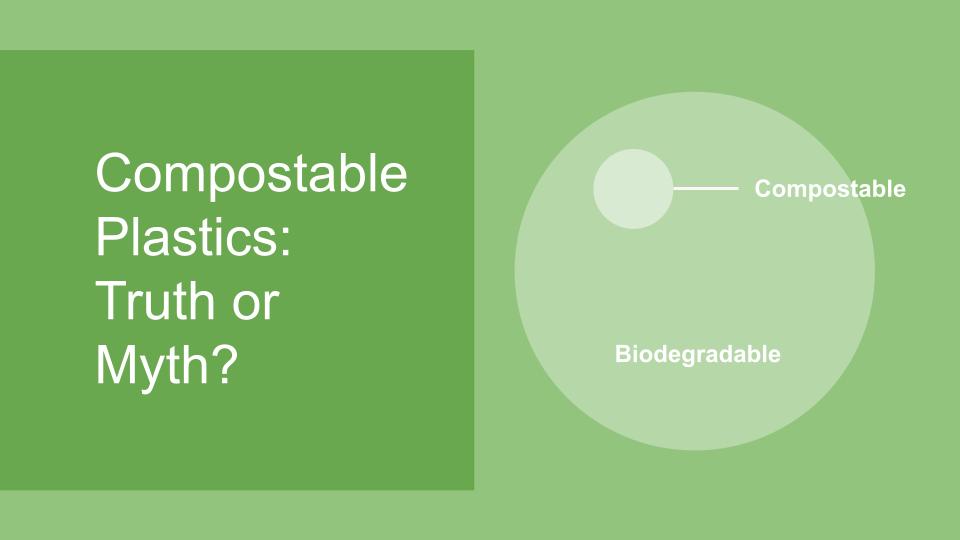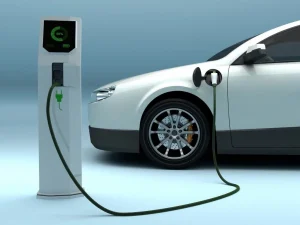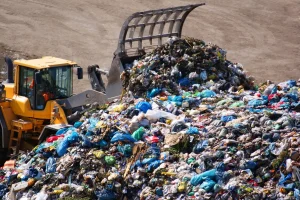
How can businesses be more environmentally friendly?
How can businesses be more sustainable and environmentally friendly? Sustainable Businesses Contents What is Sustainability in business? How did this company become a certified carbon-neutral

As people get to know more of the plastic crisis that we now face, eco-friendly alternatives are picking up stream. We all are trying to replace the disposable, harmful plastics in our ‘throwaway lifestyle’. We are more inclined towards adopting something that we believe is ‘green’ or at least advertised to be ‘green’ 😉
Compostable plastics are one type of material that is growing more popular as consumers desire eco-friendly alternatives. But will it really solve our plastic crisis? Let’s learn more about this.
Compostable plastics are made from plant-based components and have the appearance and feel of traditional plastics (made from petrochemicals). These plastics are designed in a way that it allows microorganisms to break the plastic down into natural substances such as compost, carbon dioxide, and water within a predetermined time frame but in a well-controlled composting environment.
Compostable plastics are often confused with ‘biodegradable plastics’. But composting and biodegrading are inherently very different. The main distinction between composting and biodegrading is that compostable products require a specialized environment to decompose, whereas the later decomposes naturally. Composting is usually a speedier process, but only under the appropriate circumstances.
The problem is ‘compostable is not the same thing as sustainable’ in the case of compostable plastics. Why?
These plastics are being marketed as ‘easily compostable’ or ‘eco-friendly’. In the eyes of a consumer it can mean that they will break down quickly and won’t stick around for thousands of years . The reality is way more complex. A degradable or compostable plastic item may degrade slightly faster than a regular product, but only under regulated conditions.
Compostable plastics are designed for industrial or commercial composting i.e., they require more heat and more time to decompose properly. They will be no good when it comes to home composting and most of us don’t have access to industrial set-up.
Also, because both, conventional and compostable plastics look the same they are often mixed up when they’re collected. Due to its similarities unaware consumers throw the compostable plastic in the recycling bin. Our current recycling infrastructure can only handle our traditional plastics and mixing in the plant-based plastic would taint the recycling process
A load of compostables are going to end up incinerated, and a lot of plastics are going to end up in composting plants, it's just the way it is for the next two years or three years
David Newman Tweet
Because of this lack of clarity around disposal, it’s likely that some, if not most compostable plastic will end up in our landfills. When it makes it to landfills, compostable plastic is just as harmful as traditional plastic. One may ask, how so?
Compostable plastics will eventually decompose with biodegradable materials. But there is a catch. It needs to happen under open environment where plenty of oxygen is available. Aerobic bacteria, oxygen, moisture, heat, and the right carbon-to-nitrogen ratios are all important components of the composting process, but they aren’t always present in a landfill This is a highly unlikely situation in the landfills. Also to understand that it is, a very slow process and might take years, decades, or even centuries. As a result, if compostable plastics end up in a landfill, they will stay around a long time.
In 2019, Sweetgreen and Chipotle’s compostable bowls made headlines when it discovered that they contained PFA chemicals. Which is directly linked with cancer. Environmentalist were concerned that if the bowls were composted, PFAS in the bowls could contaminate the local environment and the compost. PFAs, a worrisome class of chemicals are found in some compostable food containers.
After researching compostable plastics, I believe, using them could create a whole new host of problems without solving the firsthand plastic problem. So, here’s what we can do. REDUCE! The easiest and the most impactful solution to our plastic problem. There is no silver bullet when it comes to solving the plastics crisis. There is a pressing need to cut down on the amount of plastic garbage produced. Therefore, ‘Avoidance is best’.
Refusing that plastic bag from the vendor may not feel like a huge step in mitigating the plastic crisis on its own, but it models the change we want to see and gets us closer to what we want to achieve. We also need to understand our role as citizens in being the part of the solution. Waste segregation at home, might sound like a cliche but its the first true impactful step.
This blog is originally written by Ishita Paul. She is a Economics students from IPCW, University of Delhi. and a long time contributor to the Mission Sustainability.

How can businesses be more sustainable and environmentally friendly? Sustainable Businesses Contents What is Sustainability in business? How did this company become a certified carbon-neutral

Electric Car Conversations: The good and the challenges Contents Eclectic or Dogmatic Current state of EV Market Why EV over Traditional Automobiles What’s new in the

Revolutionising Waste Management: Producing Green Energy through Waste Contents Environment and Economy Maximizing economic growth Tracking Denmark’s progress so far Danish-India partnership for green growth